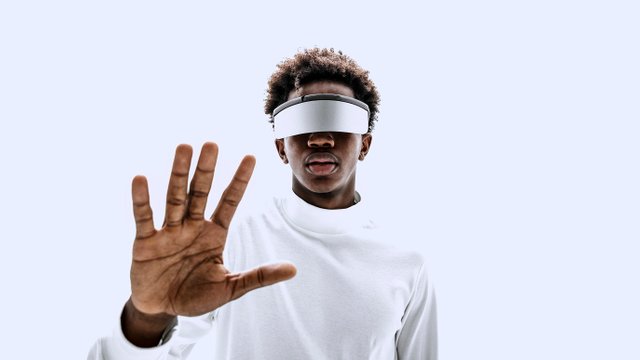The Virtual Reality (VR) technology of the modern time has gained very wide spread in the past few years and that is how we view and encounter digital scenarios. VR was initially considered as an advanced idea and now it’s commonplace with applications in multiple domains; entertainment, education, healthcare and more.

Source Freepik
The VR technology had two characteristics: one, the headsets were bulky, and the other, the capabilities were limited, at the early stage of the VR technology. Nevertheless, the progress of hardware and software joined by the attempts to make the medium more immersive and the access to it more comfortable resulted in more immersive and accessible VR experiences. The modern VR headset has evolved into something very beneficial and comfortable to wear. It has high-resolution displays and motion sensors that provide an almost real experience.
One of the most important factors in this evolution of VR technology is the fact that it is widely used in the gaming business. VR, which enables the players to plunge in virtual reality and appreciate a whole new general gaming. VR gaming be it exploring imaginative sceneries or battling with strangers, or riddling with VR objects is sure to bring high level of immersion and reactivity that the standard gaming platforms may not.
Besides VR as a leisure activity, there are other areas where it applies, specifically in education and training. Through VR simulations, students can travel back in time without leaving the classroom, investigate the inner workings of a variety of living organisms, and participate in science experiments all without any risk or stress. The same, VR produced trainings are deployed for staff to simulate live scenarios and offer a chance to practice for professionals in areas such as healthcare, aviation, and military fields.
Furthermore, VR can be a great technology for the healthcare sector because it gives providers with exclusive ways to provide patient care. VR therapy is an example of a therapy that deal with phobias, PTSD, and anxiety disorders by presenting patients with virtual reality environments aimed at combatting and eliminating the cause of the fear. In addition, VR facilitates remote consultations, surgical simulations, and training for health care providers who are unable to be present physically.
To conclude, VR technology has gained substantial momentum in the past years, given the fact that it has had a tremendous impact on entertainment, education, healthcare and other sectors of the economy. With constant progression of technology and it's availability, VR will continue transform the way that we understand and interact with the digital worlds of the future.
Thank you, friend!


I'm @steem.history, who is steem witness.
Thank you for witnessvoting for me.
please click it!
(Go to https://steemit.com/~witnesses and type fbslo at the bottom of the page)
The weight is reduced because of the lack of Voting Power. If you vote for me as a witness, you can get my little vote.
Downvoting a post can decrease pending rewards and make it less visible. Common reasons:
Submit
Upvoted. Thank You for sending some of your rewards to @null. It will make Steem stronger.
Downvoting a post can decrease pending rewards and make it less visible. Common reasons:
Submit